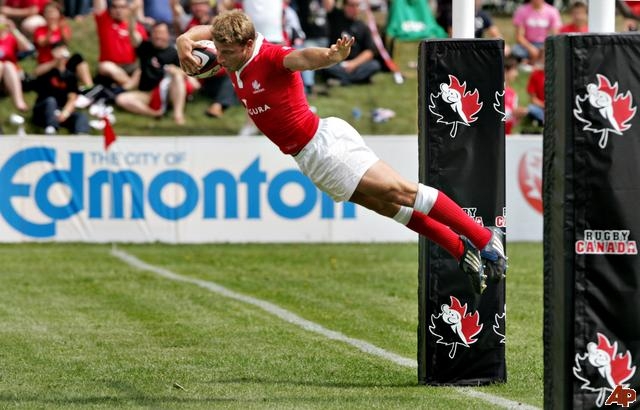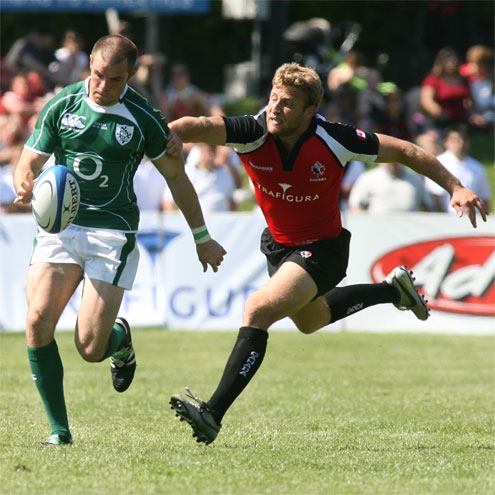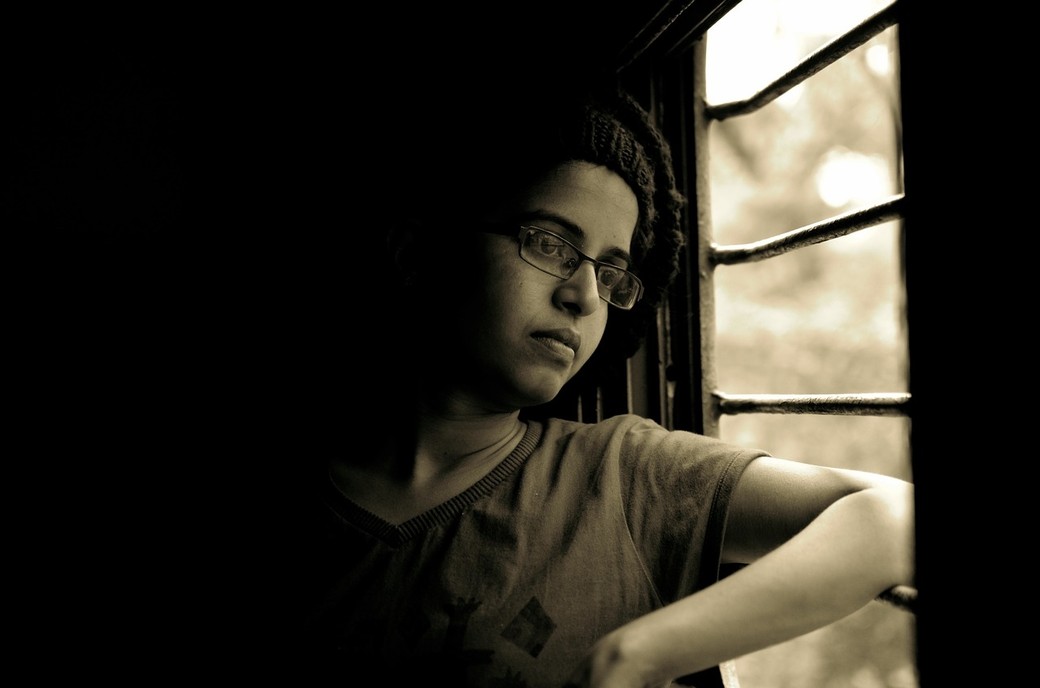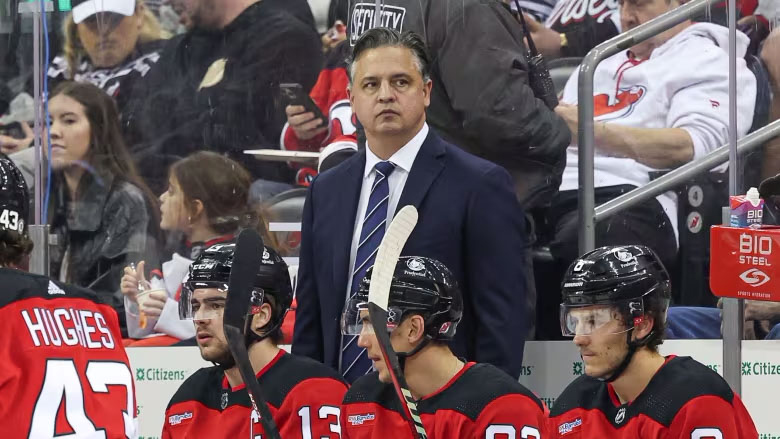
Road to Guadalajara: Canada’s Rugby Sevens Team
While the Pan American Games usually fall under the radar in the lead-up to the Summer Olympics, the 2011 version of the Pan Am Games will serve as an important precursor to next summer’s Olympics in London, especially for a Canadian team looking to rebound from a disappointing showing in Beijing three years ago. Canada traditionally boasts a strong entry at the Pan Am Games, regularly placing in the top three of the medal table, alongside the United States and Cuba. Competing against forty-one nations from North, South and Central America, of course, is entirely different than attempting to keep pace with the very best from Europe and Asia, but we can take a certain measure of pride in our success in a domain where our country has typically struggled internationally.
For a First World country with a reasonably healthy economy and plenty of young, able-bodied men and women, Canada still leaves much to be desired when it comes to overall sporting dominance. Our athletic aptitude is more or less reserved to hockey, where our men’s national team has won two of the last three Olympic gold medals and our women’s team has claimed three straight. It’s the reason we lavish so much attention on the World Junior championships every winter, a tournament generally disregarded by the rest of the world: Canada is hockey, and vice versa.

Aside from our unofficial national sport – which, unfortunately, isn’t played at any summer competitions – Canada continues to pale in comparison to the world’s best, in both individual and team events. Our sixth-ranked women’s national soccer team recently flamed out of the World Cup in Germany, scoring just one goal in three matches and exiting in the round-robin stage. Still, they’re leaps and bounds above our men’s team, who have qualified for one World Cup in their history (1986), failing to net a single goal.
Canada has witnessed similar failures in basketball, having never medalled in 12 appearances at the World Championships and winning just one medal in eight Olympic Games (a silver in 1936), and baseball, finishing 9th and 13th in the first two World Baseball Classics and topping out at 4th at the 2004 Olympics in Athens. Professionally, our individual athletes haven’t fared much better – with Mike Weir and Lorie Kane both fading into obscurity, Canada’s highest-ranked golfers are Stephen Ames (195th in the men’s Official World Golf Rankings) and Alena Sharp (123rd among women). While Thornhill’s Milos Raonic offers a measure of hope for the future of Canadian tennis, the last Canadian before Raonic to win an ATP singles tournament was Greg Rusedski in 1995 – that is, before Rusedski began to represent Great Britain.
It’s unclear whether our failures have come as a result of the incompetency of our individual sporting federations or the natural consequences of funneling our best young athletes into hockey. Regardless, with the 16th Pan American Games set to be contested from October 14th to the 30th in Guadalajara, Mexico, there’s at least one Canadian team not bound by a history of letdown, that’s set to lead our country into foreign territory and return home with gold medals around their necks.

Following an announcement by the Pan American Sports Organization in July 2007, the sport of rugby sevens will be contested for the first time at the Pan American Games in 2011. By replacing futsal, held as a one-time event four years ago in Rio de Janeiro, the rugby sevens competition will offer Canada a tremendous chance to increase its medal total from the 138 they earned in 2007 – not only because we didn’t compete in futsal, but also because Canada enters the eight-team tournament as one of the favourites.
The sport of rugby sevens encompasses all the strategy and brutality of rugby union, while also emphasizing speed and a breakneck pace. While rugby union is contested by 15 men a side over 40-minute halves, there are just seven players per team in sevens, and the duration of the game is slashed to seven- or 10-minute halves, allowing teams to play several matches in a day. The field dimensions remain the same; while space is at a premium with 30 players on the pitch, there’s plenty of room to maneuver in sevens, leading to spectacular breakaway runs, devastating open-field tackles and, oftentimes, higher-scoring contests despite the significantly reduced playing time.
Canada’s rugby union team is ranked 16th in the world by the International Rugby Board, behind the traditional Oceanic and European powers (including New Zealand, Australia, Samoa, England and France) and one spot ahead of the United States. The Canucks are teeming with confidence heading into the Pan Am Games; while the IRB doesn’t publish rankings for sevens, our performance at the 2009 Rugby Sevens World Cup suggests that we’ll be competing with a powerful Argentinian squad and an adept American team for the gold medal. (Argentina lost in the final of the tournament’s top tier; both Canada and the USA exited in the quarterfinals of the second tier, placing them between 13th and 16th overall.)

The Canadians will be playing a series of exhibitions throughout British Colombia this summer, in preparation for the two-day tournament in Guadalajara this October. Fittingly, the team will carry a distinct Western influence: five members of the University of Victoria Vikes men’s rugby team have been long-listed for the Pan Am roster, including wings Sean Duke, Beau Parker and Keaton Styles, fly half Nathan Hirayama and flanker Adam Kleeberger.
As the sport of sevens gradually distances itself from rugby union, Canada has an opportunity to get ahead of the developmental curve. Previously, sevens was viewed predominately as a lesser circuit, one where prospective and proven rugby players could compete sparingly to refine their running and passing skills. Now, with more and more young players choosing to specialize in one game or the other, Canada has a chance to establish itself as a force in sevens, something we could never do against the likes of New Zealand and Australia in rugby union. A good showing at the Pan Am Games would bode extremely well for the future of rugby sevens in our country, especially in advance of the game’s Olympic debut in 2016.
A respectable performance in Guadalajara is also crucial with the 17th Pan American Games set to be contested in Toronto in four years time. The men’s rugby sevens team is just a cog in the Canadian Olympic machine, attempting to solidify our country’s place in the hierarchy of international summer sports. The future is at stake: the future of a fledgling sport, of our struggling sport federations, of Canada’s spot among the world’s best. For Duke and Parker, Styles and Hirayama, Kleeberger and the rest of the rugby sevens squad, the future is now.







